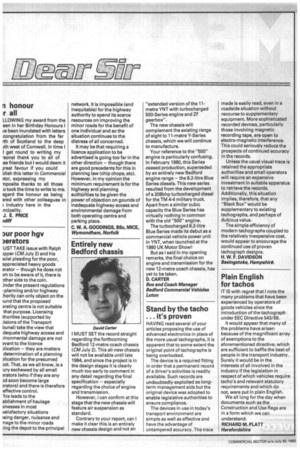Dur poor hgv 3erators
Page 22

If you've noticed an error in this article please click here to report it so we can fix it.
UST TAKE issue with Ralph )pper (CMJuly 2) and his acial pleading for the poor, appreciated heavy goods erator — though he does not ;m to be aware of it, there is Dther side to the coin.
Jnder the present regulations Iplanning and/or highway :hority can only object on the Kind that the proposed arating centre is not suitable that purpose. Licensing thorities (supported by .1sions of the Transport bunal) take the view that dequate highway access and rironmental damage are not avant to the licence )lication — they are matters determination of a planning )lication for the presumed )ot. That, as we all know, is a ury eschewed by all small arators (who if they are any pd soon become large arators) and there is therefore effective control.
his leads to the ablishment of haulage ;inesses in most ;atisfactory situations ising danger, nuisance and nage to the minor roads cing the depot to the principal network. It is impossible (and inequitable) for the highway authority to spend its scarce resources on improving the minor roads for the benefit of one individual and so the situation continues to the distress of all concerned.
It may be that requiring a licence application to be advertised is going too far in the other direction — though there are good precedents for this in planning law (chip chops, etc). However, in my opinion the minimum requirement is for the highway and planning authorities to be given the power of objection on gounds of inadequate highway access and environmental damage from both operating centre and parking place.
C. W. A. GOODINGS, BSc, MICE, Wymondham, Norfolk




















































































